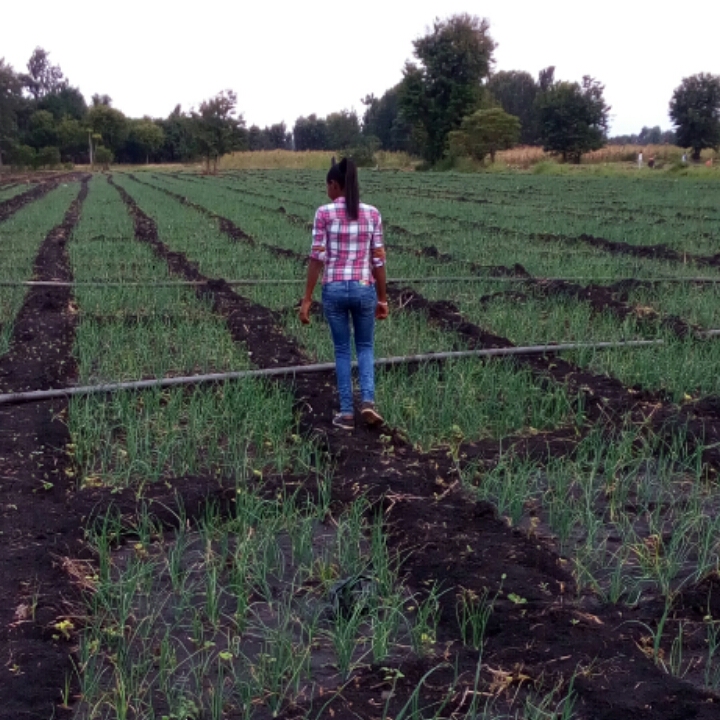
By George Munene
Upon her graduation, Anne Muriithi was among a select few who got a chance to work for Egerton University’s Tegemeo Institute of Agricultural Policy and Development in March 2014 under contract.
In two months, however, the research contract which paid her Sh1500 a day ended leaving her jobless. The 2013 Agriculture Economics graduate from Moi University would not have believed it then that in a few short years she would be selling Sh450,000 worth of tomatoes.
‘’I grew up in Mwea, Embu County and farming was our family’s primary source of livelihood; with job opportunities hard to come by in Nairobi, I headed back home with the savings from the job to chance my arm at farming,’’ said Anne.
As a newbie in agribusiness, she spent the better part of 2014 researching and gaining practical commercial farming knowledge through consultations with experienced farmers and agronomists. In January 2015 she leased five acres of land in Mwea for Sh25,000. On one acre, she grew Sukari F1 watermelon and had three acres under onions.
She harvested eight tonnes of the bulb onions which she sold to traders at Sh30 a kilo. This earned her Sh240,000 while watermelons raked in Sh150,000.
Related News: Garlic farmers earn six times more than regular onion farmers
‘’Though I didn’t quite earn as much as the ideal agronomists’ projections, I got encouraged that it was doable and gained invaluable experience,’’ said Muriithi.
In the succeeding 2016 season, she decided to move on from ordinary onion seeds to hybrid varieties planting Red Tropicana F1 and Red Creole on two acres.
She more than doubled her yield to 19 tonnes. After selling her produce to traders at her farm, she earned Sh0.5m.
In 2017, she opted to grow French beans for the export market. Sowing in June, she harvested 1.5 tonnes in less than three months. This earned her Sh75,000 after selling at Sh50 per kilo to an exporting firm.
Heavy loses
Just like any other business, farming has its own share of challenges. Diseases, unpredictable weather patterns and market downturns are just a few of the challenges growers face; especially new entrants such as Muriithi.
After successive good harvests, the 29 years old’s desire to clinch the coveted export market made her bite more than she could chew. She invested over Sh300000 to grow snow peas and sugar snaps on a three-acre piece of land away from home in Tharagua, Laikipia County.
Horticultural produce is water-intensive and with no piped water on the new farm, she had to ferry in water for irrigation which ate into her expenses. Frequent visits to check on the farm from Nairobi—where she had since moved—also proved costly.
Just when she thought she had weathered the storm, frost attacked her crops and she lost everything. This led her to abandon the farm and lease it to another farmer for the remainder of the season.
Bouncing back
After the blow, Muriithi again returned home to Mwea. Her parents gave her 1.5 acres of their land to grow French beans as well as covering her cultivations costs.
A downturn in the export market meant she wasn’t able to get as much as she’d hoped, but the little she had accrued was still enough to enable her to lease an acre in the neighborhood.
Related News: Cabbages, kales and tomatoes earns graduate Sh120,000 in profits in three months
Related News: 25 Muranga farmers earn Sh20m a year from French beans through group export contract
“I did not want to squeeze my parents on their small piece of land; with the little I had, I leased land to grow French beans and also try out tomatoes,’’ said Muriithi.
Since then, she has been specialising in the two crops which she says have become her top earners and she has been growing from strength to strength.
September last year she says she harvested 120 boxes from a two-acre piece of plot in Mwea selling each box at Sh3500-4000, earning her between Sh420,000 and Sh480,000 gross income.
Her advice to the young people who wish to venture into agribusiness is that they perform exhaustive market research and to engage well-known agriculture experts as well as experienced farmers before sowing a single seed.
















Comments powered by CComment